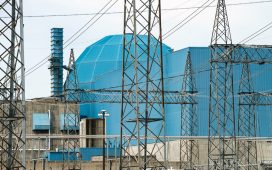– A federal broadband program meant to close the digital divide in rural America is stalled, and now thousands of Virginians are left waiting.
In the hills of Paint Bank in Craig County, Mike Bilger and his wife have lived with unreliable internet and cell service for years.
“We’re back almost to the days of dial-up modems here, and as far as the telephone, it’s hit or miss,” Bilger said.
Like many rural residents, Bilger struggles with slow internet and uses a cell booster just to send texts or access his bank online. Even phone calls only work in one part of his home.
“Really there’s only one room in the house where we’re able to make a cell call with any reliability. And only one room where we’re able to get the bank verification codes.”
In 2024, the Federal Communications Commission (FCC) raised the benchmark for high-speed fixed broadband to 100 Mbps download and 20 Mbps upload speeds — a fourfold increase from its previous 25/3 Mbps standard set in 2015. On a good day, Bilger says his service reaches just 15 Mbps down and 1 Mbps up, far below the new threshold.
Across Virginia, thousands face similar challenges. The state secured over $1.4 billion through the federal BEAD (Broadband Equity, Access, and Deployment) program to expand rural internet, but delays in Washington have frozen the funds.
The Trump administration paused the rollout and pushed back deadlines, citing concerns over implementation guidelines.
Meanwhile, Bilger is left contacting his local providers for upgrades, but says he hears little good news. While TDS Telecom originally serviced the area, RiverStreet Networks took over earlier this year.
“Service has been unreliable lately,” Bilger said. “When I contacted them, they said fiber is not coming until 2028. And there’s no guarantee that it’ll even come then.”
Although Bilger understands rural life comes with trade-offs, he says the lack of modern internet shouldn’t be one of them and says rural communities like his are tired of being told to wait by everyone.
“I don’t think they care,” he said. “If you’re in a spot that isn’t generating revenue for them, they’re not interested in making improvements.”
At the federal level, both states and residents remain in limbo. The National Telecommunications and Information Administration (NTIA) granted a 90-day extension, giving states until October to submit their final BEAD broadband proposals — a move Virginia Senator Mark Warner says only adds to the delays.
For now, rural communities are still waiting for answers.
Copyright 2025 by WSLS 10 – All rights reserved.









